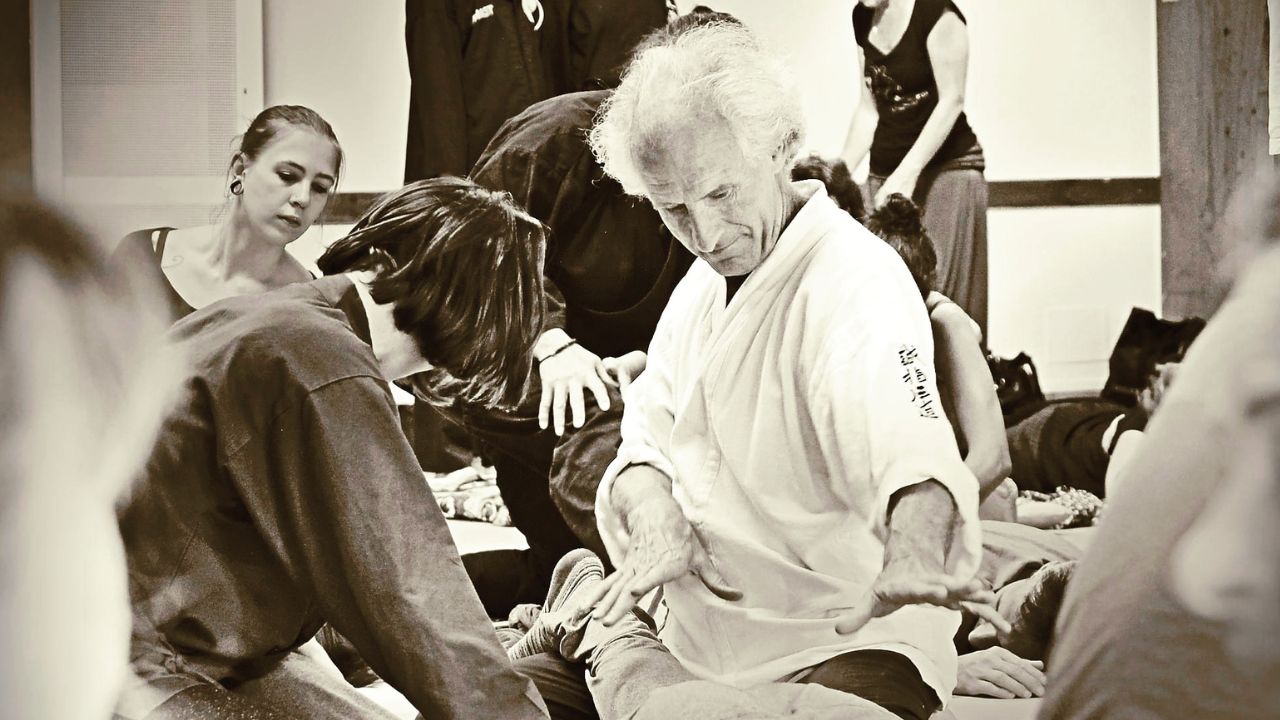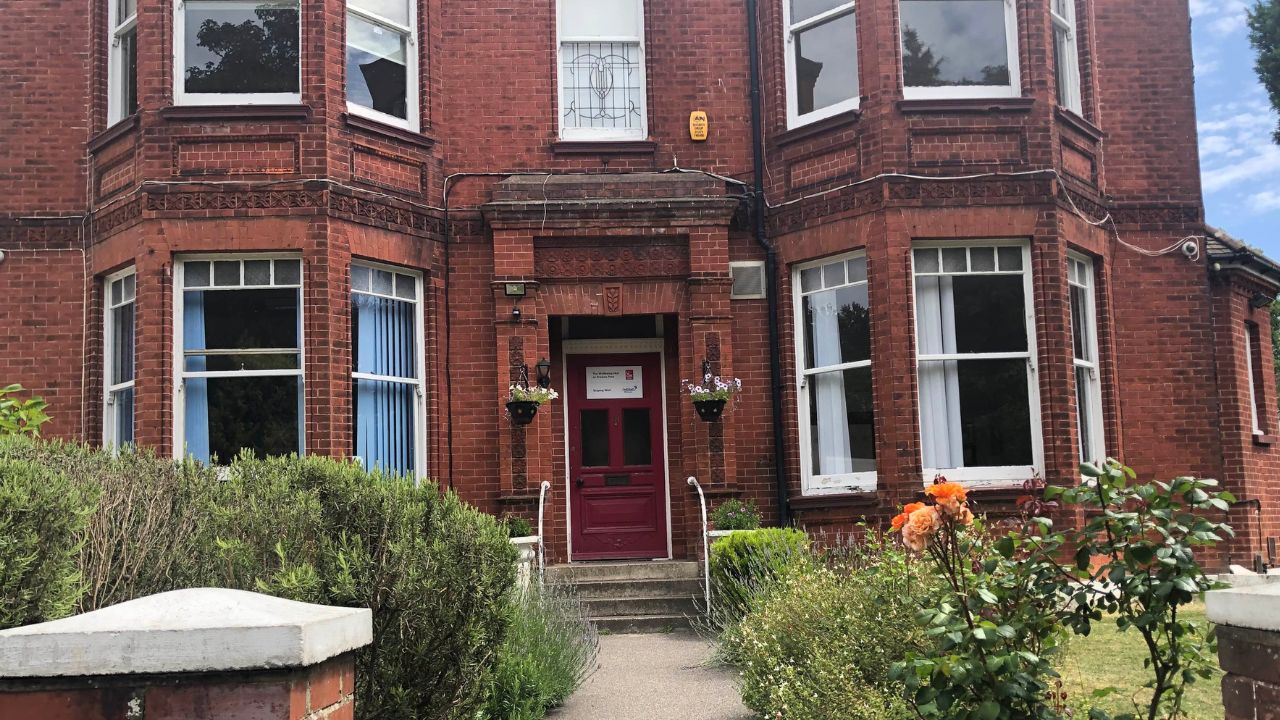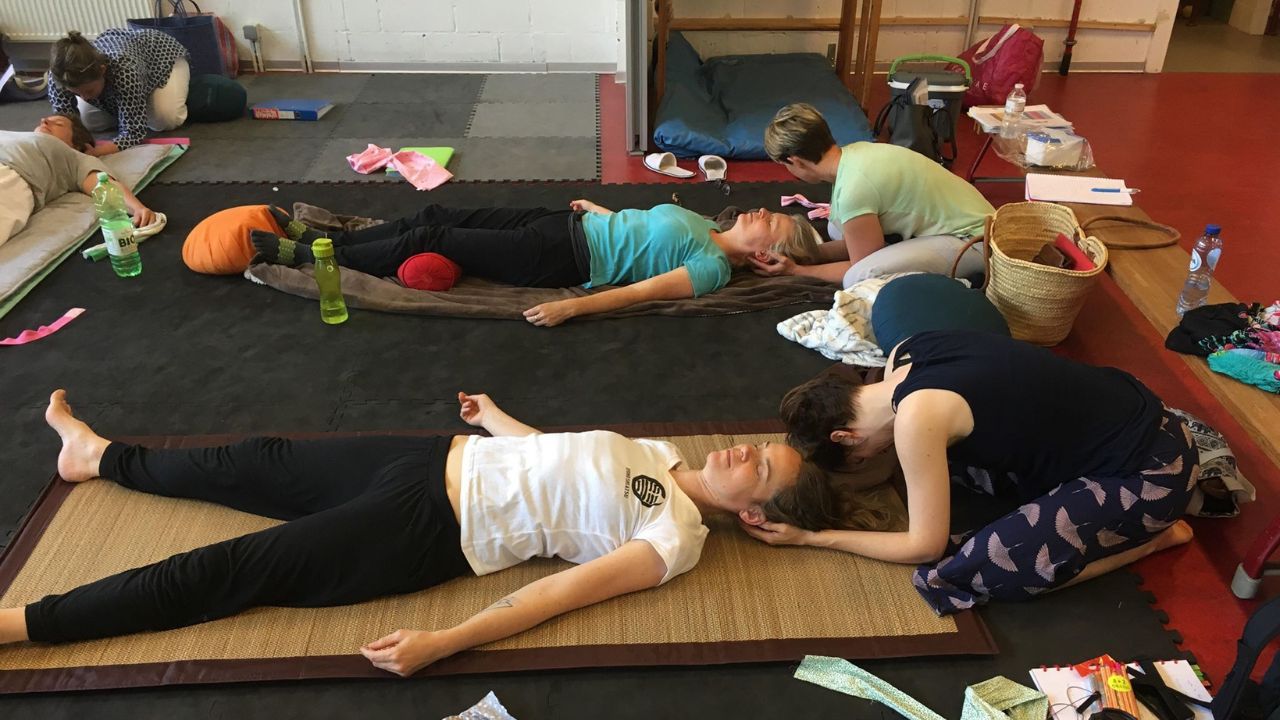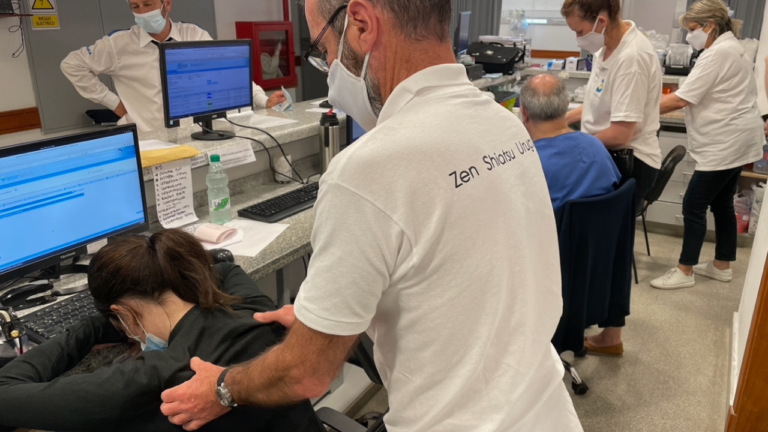
Every week a team of two to four shiatsu practitioners from Zen Shiatsu Uruguay gave Shiatsu treatments to an average of 8 patients each from COVID 2 Reference Centre health staff. The treatments took place in communal spaces such as dining rooms, corridors or halls during the first working months, when it was not allowed to get into the UCI rooms due to the presence of infected patients. The staff was free to receive mini-sessions of 10 to 15 minutes any time they wanted during the period of 6 months of weekly visits provided by the team. The treatments were for free and all practitioners worked as volunteers.
In the Spotlight
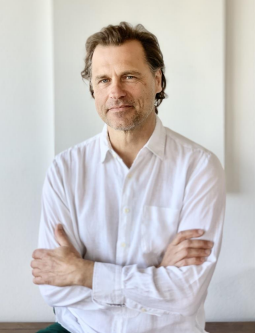
Diego Sanchez
www.diego-sanchez.com
www.zenshiatsu.uy
https://www.facebook.com/DiegoSanchezShiatsu
https://www.instagram.com/zenshiatsu.uy
Diego Sanchez is one of the pioneers of doing Shiatsu in hospitals and in emergency situations. He has been practicing and teaching Shiatsu, meditation and shamanic healing techniques for nearly 30 years.
He was born and raised in Uruguay but lived in several European countries before moving to New York. He was there at the time of the attacks on 9-11 and worked at Ground Zero and other locations giving Shiatsu to the rescue workers, police and army personnel. He was a member of the staff in Dr Mehmet Oz’s integrative Medicine Program at Columbia Presbyterian Hospital, giving Shiatsu to open-heart surgery and organ transplant patients in the Intensive Care Unit. He also worked for over 6 years as a volunteer at a support center for people with cancer, HIV and AIDS and in a hospice service in different hospitals in NYC.
He now lives in Uruguay where he organizes internationally attended retreats and is directing a team of practitioners in Zen Shiatsu Uruguay (zenshiatsu.uy) that has given nearly 2500 sessions in hospitals in the National Health System throughout the country since 2019. He teaches regularly in Europe and the USA.
Foreword
Our team of Shiatsu Practitioners at Zen Shiatsu Uruguay already had experience of giving more than 800 mini sessions to the medical staff at their workplace in the intensive care unit (ICU) of the Neo-natology department of the biggest children’s hospital of Uruguay’s NHS in 2019.
This project was incredibly successful but had to stop once covid-19 started. When the cases increased sharply in April 2021, it was already apparent that front line responders, exhausted by the workload and the emotional burden they were carrying, could barely handle it any longer.
I watched an interview on TV with the Medical Director of the biggest covid-19 reference center for the country, saying how his team was tired and demoralized by not being able to avoid so many deaths happening on their watch. He said: “my team needs a boost of support”.
I managed to find his number and called to offer him to let us support his team with shiatsu. We already had good recommendations from our previous experience in the NHS ICU environment and he accepted immediately.
Typically there is a high intensity work rhythm in the ICU, so instead of trying to move people away from that into a slower more relaxed rhythm, we sped up our own technique and tempo to match theirs.
In this way we didn’t need to interrupt what people were doing, except during a small window of 10 to 15 minutes, where they would sit on a chair where they were working and receive a session in the middle of all the surrounding activity. This bypassed any resistance of having to stop what they were doing or having to dedicate too much time away from their task. We made it very easy to integrate the sessions within their workload and our aim was to make our touch relaxing but also invigorating.
They felt that in a very short time they could offload the physical tension but also the emotional burden of the situation that they were experiencing, without having to speak a single word. They felt refreshed and revitalized, ready to continue working with less pain, more relaxed and in a completely different state of mind.
This system of work also allowed us, as practitioners, to preserve our own energy and direct our attention into short, bursts of focused action.
Our capacity for work allowed each shiatsu practitioner to see between 8 to 10 people within a two hour shift and then step away completely for at least a 90 minute break, before starting the next 2 hour shift. We did a maximum of 2 shifts per day, occasionally 3.
We tried to bring as many practitioners as possible, to do the most amount of sessions in the least amount of time. Our team currently has 7 members now and we usually show up in groups of 3 or 4.
Our system of work was fast but still included a very accurate energetic diagnosis to focus our intention on a particular meridian function. Within the general routine of working on the back, shoulders, neck, arms and head, we followed that specific meridian. We also assessed the changes energetically throughout the session in real time and also at the end, as well as inviting the client to comment about the experience.
If appropriate, we would give them feedback, but overall we opened the space for listening. Many just started crying when we placed our hands on their shoulders.
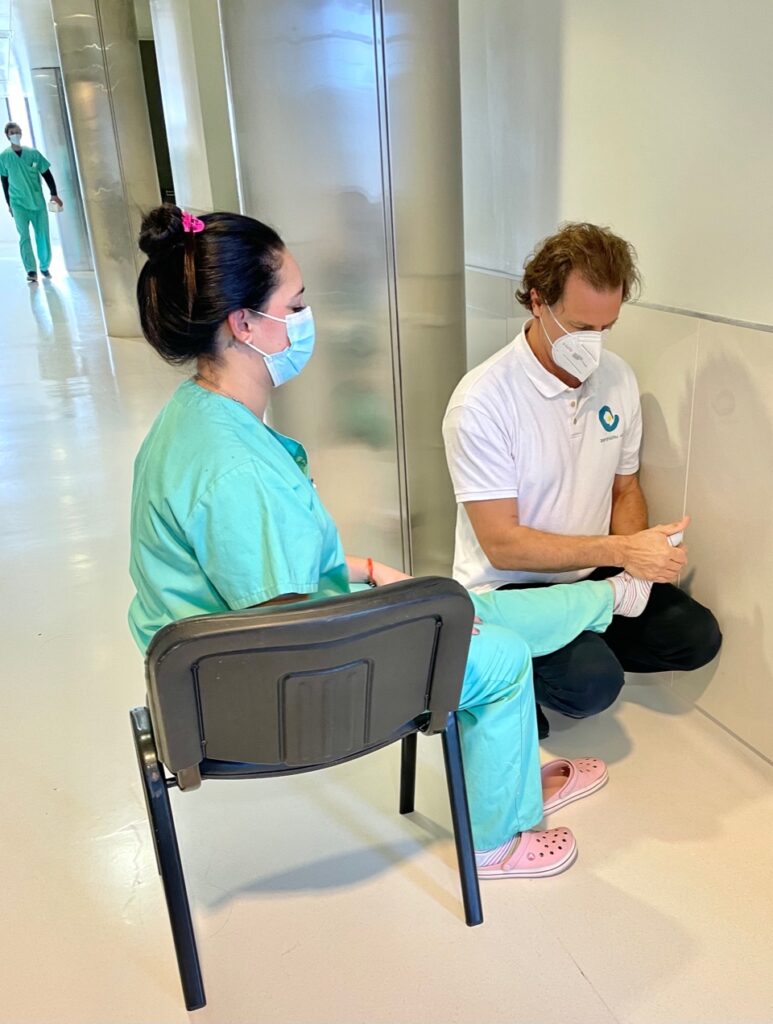
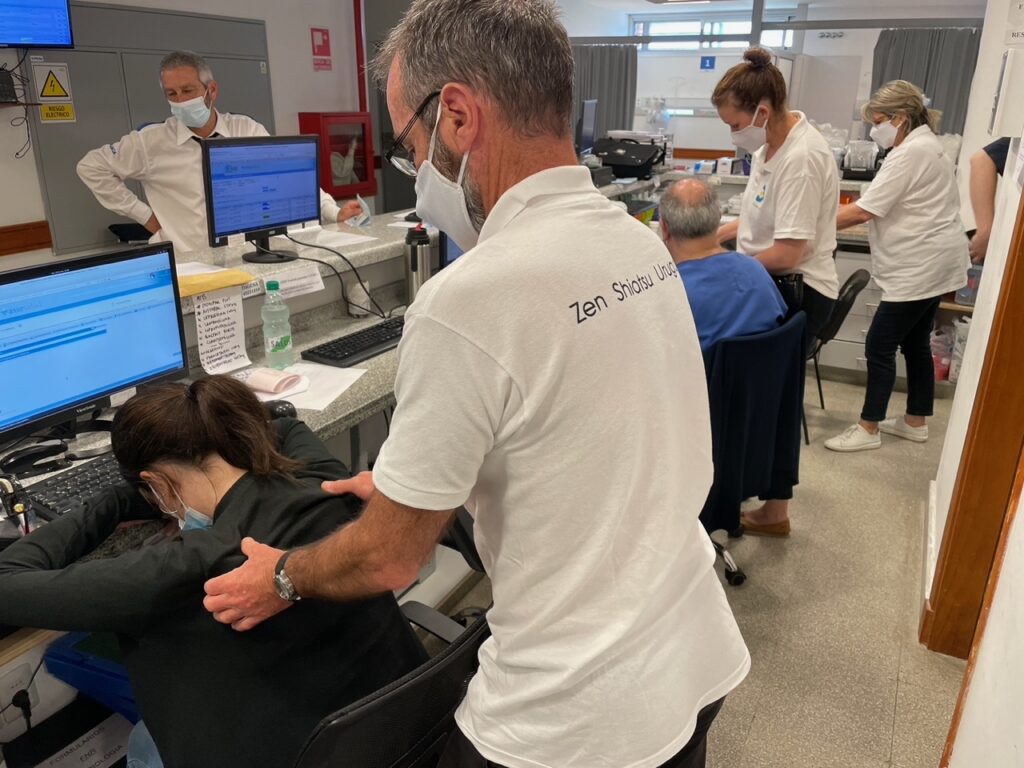
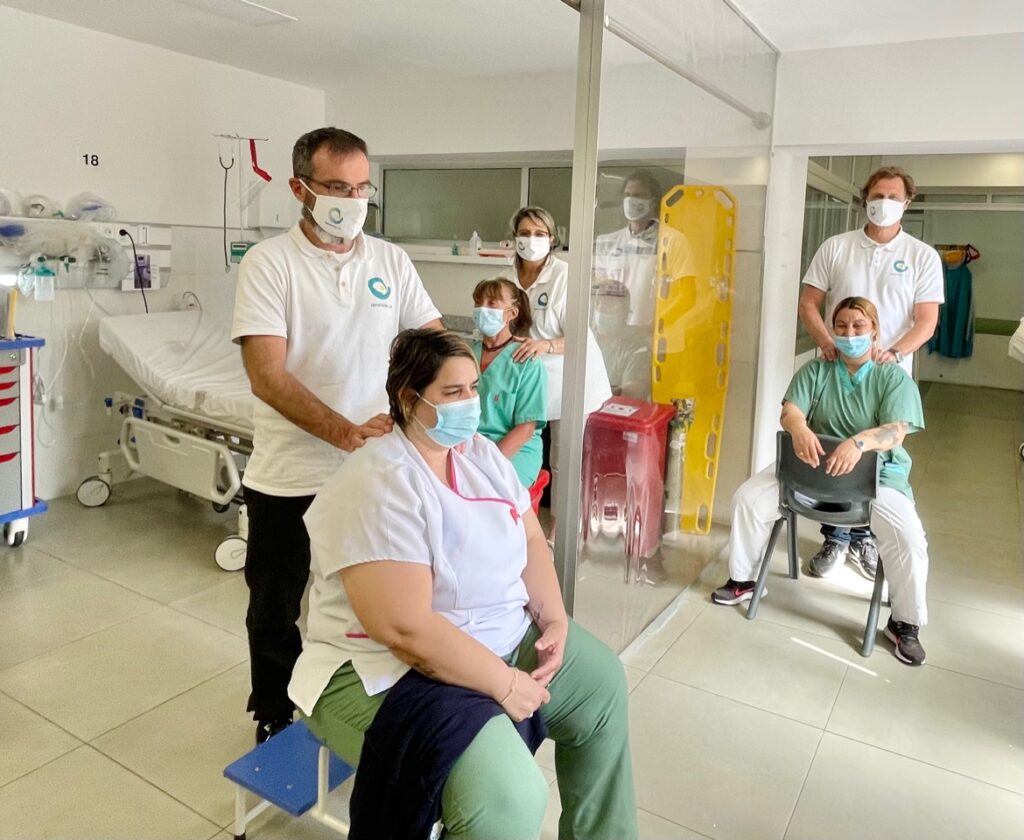
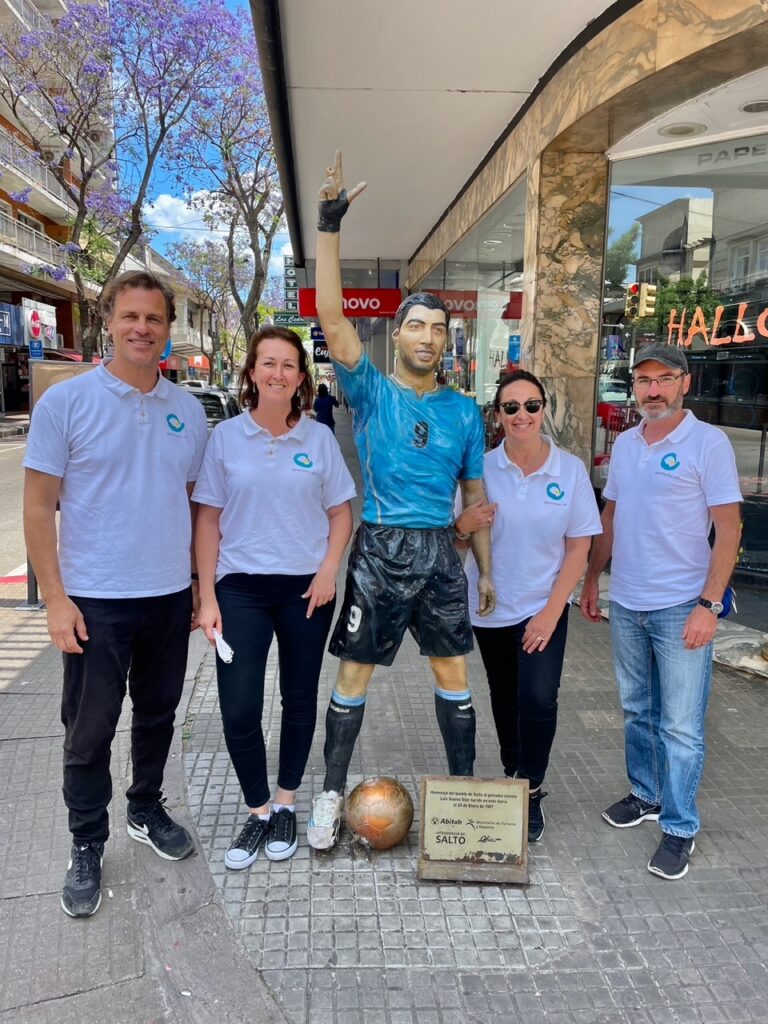
The feedback received was very positive, both from the hospital direction and the health staff at all levels. Relaxation, stress relief, fewer problematic work situations, better sleep, better personal relationship, less use of drugs, relief from backache and headaches, digestion and intestinal problems, shoulder and neck tension relief were frequently reported. Workers also became conscious of the need to take care of their own health and become aware of unhealthy states. Many even started questioning their professional future.
These workers have high pressure, long working hours at one or more places and in most cases low salaries and cannot afford to engage in self-care activities after work. Therefore the possibility of having the sessions during working hours was both essential and highly appreciated.
Our horizontal approach to the attention of all staff without distinction, from cleaning or kitchen assistants to doctors or administrative direction, in the same place and for the same amount of time for everyone, improved the work environment considerably. For lower hierarchy employees, it was very motivating to see the hospital director sit in a chair and receive a session in front of everybody, since it emphasised the importance of self-care and of allowing others to care for them.
Postface
We gave a total of 756 sessions to Covid-19 Intensive Care health workers in 10 different hospitals throughout Uruguay’s national health system during the months of May to November 2021.
413 sessions were given in one hospital, Centro Covid 2 in Montevideo (capital of Uruguay) that was adapted to receive Covid 19 patients exclusively and had the highest number of cases and deaths. We visited this hospital twice a week, every week, for 2 hours each time. Some workers in this hospital received repeated sessions (up to 11 sessions in 6 months).
343 sessions were given in other hospitals in 9 different cities, spanning 3500km throughout the country in less than 3 months. Only one session per person was received in these hospitals. We travelled during weekends in our free time.
The sessions were free but we organized a fundraising campaign and received donations from individuals in several countries to meet our travel expenses. We also had a sponsor (a bottled water company) that contributed financially and helped with visibility in the press and social media.
“After the first 10 minute session I received I could really relax and let go the buildup of tiredness and pain in my body. Many people in my team received Shiatsu and I noticed that we didn’t argue so much during our shift and we made less mistakes than usual. The other thing was that I worked longer hours but didn’t feel tired. When I went home late at night, I was relaxed while I ate something and had a nice conversation with my husband. Afterwards I slept like I hadn’t in a long while.”
Patricia Cuesta, Head Nurse, Centro Covid 2 ICU Montevideo UruguayL
